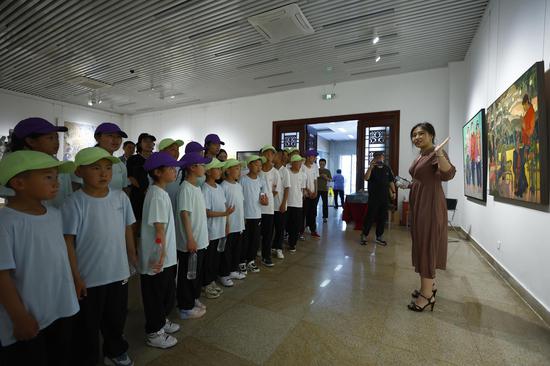A draft guideline on fighting cyberbullying-related crimes and violations has begun soliciting public opinions on Friday, in a bid to effectively solve the problem that has become a big complaint.
The draft, which was jointly formulated by the Supreme People's Court - China's top court, the Ministry of Public Security and the Supreme People's Procuratorate - the country's top procuratorate, has been disclosed online.
The top court opened its postal and e-mail addresses on its website, welcoming individuals and departments to share ideas and raise suggestions about the legal document.
The deadline for opinion collection will end on June 25.
The draft introduces that online bullying, such as slandering or insulting others, or infringing on others' privacy or reputation, has brought serious consequences to the society. Some cases mortified victims, or even caused mental disorders or led them to commit suicide, the draft said.
Cyberbullying, a hot global issue, not only disturbs the cyberspace order, but also seriously affects the sense of security of the public, it said.
Compared with traditional bullying, online bullying mainly targets strangers, which means it is difficult for victims to find out their attackers and collect evidence, it said, calling for courts, procuratorates and public security departments nationwide to fully realize the social harm of cyberbullying, providing sufficient legal aids for victims and maintain the online environment.
The draft clarifies some behaviors that can be identified as cyberbullying and specifies what crimes should be charged.
For example, it states that those producing or spreading rumors to defame others or damage others' reputation, causing serious consequences, need to be charged with the crime of defamation in line with the Criminal Law.
It also stipulates that someone who organizes cyber manhunts, collecting personal data of others and sending them to more people, he or she will face the crime of infringing on said residents' personal information.
In addition, it requires judicial departments to give heavier punishments to perpetrators who bully children or the disabled.
Furthermore, those conducting organized bullying, falsifying sex-related topics to infringe upon others' dignity or using technologies - such as deep synthesis - to publish illegal or harmful information, in violation of public order, customs, ethics or morals, will also be harshly punished in accordance with the draft.


















































 京公网安备 11010202009201号
京公网安备 11010202009201号